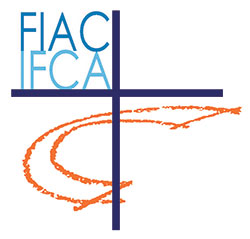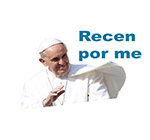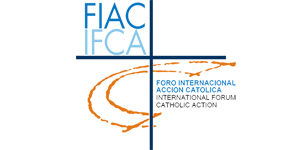Europe “workshop” encounters of Gospel and cultures in John Pauls II school Archbishop Józef MICHALIK – DISPONIBLE SOLAMENTE EN INGLÉS
To start a reflection on Europe in accordance with thought and teaching of John Paul II we obtain a great and interesting Book devoted to this continent. It is post Synod adhortation, collecting reflections of two bishop synods on the problems of this continent: Ecclesia in Europa (June 28th 2003) and a number of other opinions and documents published on the occasion of various meetings, events and journeys. Let us, therefore, try to define how Europe is understood by John Paul II and what His expectations towards the continent are.
I To see and estimate
Following the methodology used by Catholic Action undertaken decisions concerning activity programs should be preceded by recognition of reality, because the worst cognitive disorder takes place, when we see things, situations and people in the way we would like to see and not what they really are.
The Church must observe social life in particular countries and adjust its message to people all over the world, including believers and non-believers, Catholic and people of other religions. Hence, the popes’ statements are sometimes very general and nonetheless it occurs, that popes are blamed for interfering into politics.
Let us remind that not so long ago post war Europe was divided by the means of iron ideological curtain, which symbol was the Berlin Wall and none of those times’ politicians was interested in changing that situation: neither Helmut Schmidt, Giscard d’Estaing, Jimmy Carter nor, all the more Brezhnev, Husak, Gierek, Ceausescu or Honecker. The Teheran and Jalta Conference agreements were undisputed also for the Holy See. And that was the shape of Europe, to which the Pope addressed His messages for the first several years. However, against all, since the beginning He spoke “of unity of Christian Europe composed of two great traditions: West and East…..so there comes the Pope to speak for nations and peoples often forgotten confronted by all the Church, Europe and the world (Gniezno, June 3rd 1979).
These words set in motion historical process (what was mentioned by both Mikhail Gorbachev and Ronald Reagan) of a new thinking of spiritual Europe unity, what was not at that time spoken out loud and probably even thought about. One of the renown publicists of “Newsweek” (Kenneth Woodward) wrote then: “putting an end to division of Europe into East and West as well as utopian vision of Europe reaching from the Atlantic Ocean up to the mountain ranges of Ural Mountains was a real jewel in Pope’s international plans. Only the Pope-Pole could dream such a dream (after M. Zieba OP, Niezwyk³y pontyfikat, 59).
It should be remarked here, that the ground of Pope’s analysis was not at that time knowledge based on observations, that the giant of communistic economy and ideology stands on clay legs, but faith and theological reflection based on faith, which makes the popes (and every Christian) remember, that since Christ’s birth all human history has been sacred, that Gospel can be used in every situation and humanity epoch, that it is God, who directs history and fate of the world. And therefore the Pope is convinced, that none of the projects concerning nations, states, continents or a particular man not based on strong foundations made of values, moral rules, conscience verified by the faith in God, can survive.
Europe is not a lonely isolated island, but the continent of dynamic and various contacts. It inspires the others, but also assimilates ideas and ideologies popular in the world nowadays. Is this process uncritical or methodically directed?
We have to wait for honest answer, but there are a lot of thought-provoking facts, which can be premises to make conclusions. One of them is astonishing aggression towards own Christian roots, unveiled towards the right to public presence of a cross sign at schools, elimination of natural ethics in many legislations of EU states (e.g. absurd propaganda of same-sex partnerships, homosexuality, dictating legislation for abortion with simultaneous ban on calling it “murder”, according to biological truth). Michel Schooyans, political and moral philosophy professor at the Catholic University of Louvain reveals courageously in his books opinions, that even international organizations starting with UN are being transformed from international community of sovereign states into a supranational organization, which aim is to introduce international deal, profitable for its own interests.
It should be remembered, that international conferences in Cairo and Beijing dealt with various subjects, but at all costs tried to impose common right to abortion and clear program of backtracking from natural law. The role of the Holy See and particularly opinion of John Paul II defending the right to live was clearly heard at those conferences.
John Paul II often repeated, that: “Christ can not be separated from human history”, and in His last book, which appeared just before His death He warned: “Once freedom is no longer connected with truth, but conditions truth from itself, it creates logical premises, which have harmful moral consequences. Their scales are sometimes unpredictable” (Pamiêæ i to¿samoæ, 51). He also alerts, that the fall of communism “does not mean, that it was rejected as ideology and philosophy”(ibidem, 56). Conscious Pope’s analysis of the situation of contemporary Europe arouses His anxiety coming from observations, that our continent has currently set to motion not only alarming and astonishing phenomena, but complete tendencies leading to loss of European spiritual identity.
According to adhortation “Church in Europe” the following facts are observable in present Europe:
– loss of memory and Christian heritage
– laicisation process and fashion for non-believing
– fear of future and decline in birth rates
– sense of solitude
– lack of interpersonal solidarity and anonymity
– many Christians live in the way as if Christ had not existed at all, because a man took up the place of God, while the society suffering from horizontalism needs to be open to transcendence ( Ecclesia in Europa, 34 and next).
There are, however, signs of hope:
– freedom regained by the great part of Europe
– growth of solidarity in Christian mission among many christened
– women participation in Church life
– numerous martyrs and witnesses to faith become patterns for contemporary people
– dynamism of Catholic Action, other associations and Church movements deepening faith among laity
– ecumenism understood deeper
– radicalism in expressing the truth about sin
– sensitivity to improprieties over country borders.
The Church has the most precious good to offer for Europe, the good, which can not be given by anybody else – it is the faith in Jesus Christ (Ecclesia in Europa, 18). And this is the faith, which orders us to point at, first and foremost, victorious and creative solutions of going out from sin situation (ibidem, 106), starting with restoring complete value of the human person, defending human life from natural conception to natural death and indicating a role of a family grounded on Divine Right.
Christian vision of a man and the world is not afraid of religious pluralism and appreciates pluralism of cultures, with which it wished to be enriched, but simultaneously it sees the necessity of possessing Christian identity in relations with all people, cultures and religions.
II Solution suggestion
We should first and foremost listen to our Lord Jesus and Christ’s guidance to preach Gospel to all nations is very clear (compare Mt 28, 19) and it is undisputed priority for the believers. John Paul II went even further, demanding from us new evangelism, i.e. reminding Gospel also to those of the christened, who forget it. ” New evangelism can not be mistaken with proselytism and that respecting the truth, freedom and dignity of every human person is absolutely obligatory” ( ibidem, 32). “The Church exists for evangelism” – Paul VI said and John Paul II encourages us: “The Church – you must be able to find the enthusiasm for preaching in Gospel (ibidem, 45). Pope’s vision of “Europe of Spirit” (121) is contradicted to both confessional state idea and agreement for ideological laicism (ibidem, 117). In accordance with Second Vatican Council the Church recommends constant dialogue of Christianity with philosophies, cultures and religions (John Paul II, Novo millennio ineunte, 56). Realism of John Paul II is deeply rooted in contemporary mentality, which is enlightened by faith and therefore the Pope is courageous to say, that “Europe today should refer to its Christian past. It must also learn anew to shape its future in meeting with the Person and proclamation of Jesus Christ” (Ecclesia in Europa, 2).
Therefore Europe, i.e. each of us European Christians and in particular every man involved in activities of Church or Catholic associations should become a “workshop”, where Gospel meets every day life and faith meets culture, Jesus Christ meets a particular man. This effort should create wide atmosphere of unity in the care for faith and contemporary world’s fate. Since, to be a Christian in our times means to be a creator of communion in Church and society (John Paul II, Slavorum Apostoli, 27).
Let us remember, that among numerous new spiritual movements animating dynamically the Church life, Catholic Action is not any Catholic association (only), but the Church one in a particular meaning of this definition, because it is created by a bishop and Episcopal Conferences in a certain country and it can not forget that the essence of its existence is not only to “harmonize”, but fully identify with the Church, i.e. with ministry program of a parish, diocese and guidelines drawn by the Pope.
Responsibility for evangelism is connected with well perceived ecumenism and the Pope sends clear addresses in this question: “My thought turns to Brothers of the Eastern Churches to search with them convincing answer to questions put forth by today’s man in every corner of the world” (Orientale lumen, 3), because “The Roman Church cherishes feelings of respect and love for legacy of Christian East (John Paul II, Euntes in Mundum, for 1000 year anniversary of Christianization of Kievan Rus’, Jan.25th1988, n. 6). We all should acknowledge, that “Two forms of Great Church Tradition – Western and Eastern, two forms of culture complete each other as two lungs in one organism”.
It can be stated, that two currents – eastern and western became simultaneously first great forms of inculturation of faith (ibidem, 12). The above considerations touch and even grow of ecumenism line, ready to accept, that faith – also Christian one – is expressed and experienced in particular culture, which appear varied and in a great number. There is a culture of unity contact, openness, but also contradicting one, culture of suspicion and exclusion. Today there also exists another culture – “the culture of indifference. The West – as cardinal P. Poupard remarks in his book – “This Pope is a gift from God” – sinned with pride regarding itself as a possessor of a culture higher than all the others and only by humble confession of faults, which are plentiful on both sides can we clear the field of a human heart to prepare it for Gospel seed.
I have a feeling, that John Paul II for many years has been conducting a dialogue with Poland, Europe, culture, a man and even the Church concerning the matters most important for Him and all of us. And therefore He constantly demanded participating in this dialogue, which is shown, e.g. in his reflections for Angelus on February 15th 2004: ” The encounter of the Gospel with the cultures ensured that Europe became a “workshop” where important and lasting values were forged down the centuries. Let us pray that in our day too, the universal Message of Christ entrusted to the Church may be the light of truth and the source of justice and peace for the peoples of the Continent and the whole World”(…). “Jesus Christ became one of us, His coming to the World changed everything, opened perspectives which exceeded our understanding and our expectations. Only the saints open to the light of the Holy Spirit living still on our earth see further and better, because they perceive all our earthly reality in a different way, deeper. St Catherine of Siena used to repeat: ” Become this, who you should be and you will set the world on fire”. Therefore we should come from theoretical reasoning to action, to fulfill human dignity, to breathe the complete happiness. Let us put a radical question, however: Is it possible to reject Christ and all what He brought into man’s history? Of course, it is. A man is free…..And therefore you must be strong, dear Brothers and Sisters. You must be strong with the power which is given by faith. You must be strong with the power of faith (John Paul II, Kraków – B³onia, June 10th 1979).
People ignore positive values or reject given chances of development or positive success due to various reasons. We look at particularly famous revolutions from the prospect of time in a different way now. Even their leaders frequently took over the structures, which they once had been fighting with. That was the case with 1917 in Russia, that was the case in Paris in famous 1968, when it was claimed, that “liberation of a man must be complete or it will not exist at all” or ” we – the young are not against the old, but against this, what makes them old”, ” be the realists, demand the impossible” and above all: “in particular – no remorse”. All those slogans reveal destructive power of psychology of a mob, but not only. Captivation (infatuation) with history or rather rapture of the fact that we have mounted the “horse of History” (after Alain Finkielkraut, Un Coeur intelligent, 2010, 20) was in fact unjustifiable ease of treating human existence.
Thus Christian way of humility calling for conversion teaches us the distance to ourselves, helps us to avoid the turns of history harming the world, which we have not been free from either in 20th or 21st century. Constructive analysis should be critical first in putting forth demands to ourselves, because these are the actions which make the preached truth reliable and verify love. Testimony of life of the ill Pope stuck to the wheel-chair showed every of us, that He, like nobody else, was entitled to say the words being the key to our hearts: “do not be afraid” ( first of all, do not be afraid of yourselves, do not be afraid of the world or the Church) and that :You must demand from yourselves, even if the others did not demand from you” (John Paul II, Jasna Góra, June 18th 1983).
This guidance directed to the youth was repeated by the Pope many times. It is equipped with particular potential of wisdom and dynamism so close to a man sensitive to good and evil. But the Pope went further, up to the sphere of thoughts and wishes, wanting to touch the whole inside and therefore He taught in a very difficult historical period for Poland: ” let us not wish to have Poland which would cost us nothing”. These are beautiful and strong words which can be suitable for completing and summarizing our reflections. Let us not wish Europe, which would cost us nothing and let us not wish the Church, which would cost us nothing.
V European continental Meeting – Kracow, 6-9 May 2010
“LIFE, BREAD, PEACE, FREEDOM”. Catholic Action Lay People in their towns for a more humane world
- rsris_slide_link:
- wps_subtitle:
- Archbishop Józef MICHALIK - DISPONIBLE SOLAMENTE EN INGLÉS
- pl_view_post:
- 1051








